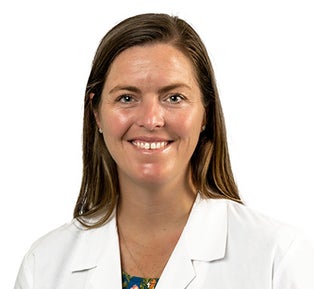

Location(s)
Baptist Medical Group - General Surgery
DEPARTMENT OF BAPTIST HOSPITAL
125 Baptist WaySuite: 5C
Pensacola FL , 32503
Phone: 448.227.6820
View Map
Biography
Madison Lashley, M.D., FACS, is a highly trained, board-certified general surgeon who is dedicated to providing exceptional care to patients. She specializes in endoscopic, laparoscopic and robotic surgery. Dr. Lashley strives to help patients through a multidisciplinary approach, treating the whole person and empowering them to regain and maintain their health. She provides compassionate care by working closely with patients to address their treatment options to achieve the best outcomes.
Medical Education
Doctor of Medicine
University of Texas School of Medicine
Houston, TX
Bachelor of Science
Kinesiology
University of Texas
Austin, TX
Residency
Mercer University School of Medicine – Atrium Health Navicent the Medical Center
Macon, GA
Certifications
American Board of Surgery
Da Vinci Robotics
Fundamentals of Endoscopic Surgery
Fundamentals of Laparoscopic Surgery
Advanced Trauma Life Support Certification
Advanced Cardiac Life Support Certification
Pediatric Advanced Life Support Certification
Memberships
American College of Surgeons
American Society of Breast Surgeons
American Association for the Surgery of Trauma
Clinical Specialties
General Surgery
Robotic Surgery
Kinesiology
Clinical Interests
Trauma and Critical Care, Abdominal Wall Reconstruction, Biliary Disease, Anorectal Disease, Colon Cancer, Breast Disease, Wound Care, Amputations, Endoscopy and Robotics
Research and Publications:
Griffin, Madison., Ismaily, J., Tri, W., Suarez, A., Noble, P. (2012). Anatomical Landmarks of the Distal Tibia and the Flexion-Extension Axis of the Knee. Poster presented at: Orthopaedic Research Society Annual Meeting; San Fransisco, CA.
Griffin, Madison. A Political, Social and Economic Analysis of the Necessity and Success of Title IX, 2010. thesis.
Griffin, Madison. "A Medical Student's Perspective." Being a Woman Surgeon: Sixty Women Share Their Stories. Ed. Preeti R. John. Los Angeles, CA: Gordian Knot, 2015. N. pag. Print.
Griffin, Madison. Nolan, H. Wengler, C. Bedgood, R. Ashley, D. “Duodenal Leiomyoma Causing Duodenojejunal Intussusception.” The American Surgeon. 82.7 (Jul 2016): E164-E166.
Griffin, Madison. Howard, B. Christie, D. “Hemodynamic Transesophageal Echocardiography in post-trauma resuscitation and its effect on Continuous Renal Replacement Therapy.” The American Surgeon. (Aug 2017): 83 (8): 855-859.
Scott, Anthony. Callier, M. Lashley, M. Cole, D. Dale, P. “A 12-year Single Institution Experience with Accelerated Partial Breast Irradiation.” The American Surgeon. (Aug 2018): 84 (8) 1261-1263.
Scott, Anthony. Lashley, M. Drury, N. Dale, P. “Comparison of Call-Back Rates between Digital Mammography and Digital Breast Tomosynthesis.” The American Surgeon. (Aug 2019): 85 (8) 855-857.
Meet Your Provider
What about your line of work do you find most rewarding and why?
The most rewarding part of my work is when a patient returns to the clinic after implementing strategies we’ve discussed (either surgical or nonsurgical) and says their pain is gone. Often, I see patients who have had to limit their lifestyle significantly because of whatever problem they are seeing me for. To help them fix that problem and see them experience life again is the best part of my job.
In your opinion, what’s the most important factor in a doctor-patient relationship?
Trust and confidence.
What can a patient expect when they have you as a doctor?
My patients can expect to be treated like family; that means kindness, honesty and a desire to help. I devote time and attention to each patient individually so that they can be confident that I will work tirelessly for their best outcome. Often, this means employing a multidisciplinary approach in order treat the whole patient and not just the problem they present with.
What are your top priorities with every patient you see?
First, that they feel heard and seen. Second, that their problem/pain is addressed.
Describe one of the top ways you ensure each patient receives the quality, personal health care they deserve.
The first step in providing quality personal health care is really listening to the patient in order to understand the problem they want fixed.


